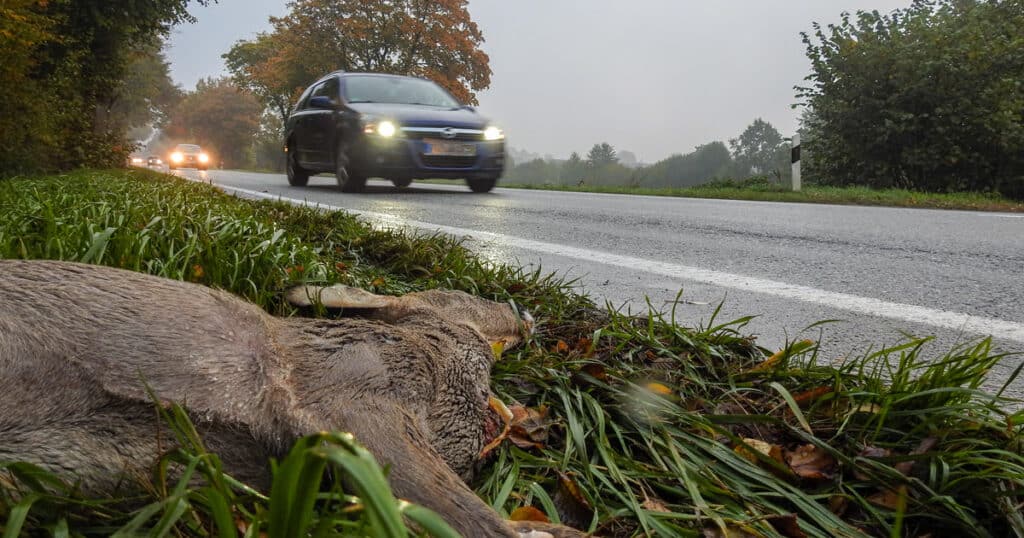Hitting a deer with your vehicle is an unfortunate event. Depending on your location, it is actually a more common occurrence than you would think. In the heat of the moment, lots could be going through your mind, though we don’t expect your insurance rates to be at the top of the list of things you think about upon hitting a deer. But at some point you may wonder how does hitting a deer affect insurance rates?
Today, we will be taking you through everything you need to know when it comes to the impact on your insurance premium from deer collisions.
From the different factors to consider, to the role of comprehensive coverage, and even discussing what you can do to increase your claim, we’ve got you covered.
Insurance Rates
The first question you may be asking is how do insurance rates relate to deer?
Hitting a deer or any animal with your vehicle can cause damage to your vehicle, or to yourself, which can impact your auto insurance rates, leading to an insurance claim.
Comprehensive Insurance
If you live in an area that is densely populated with deer, you might want to consider getting comprehensive coverage on your insurance.
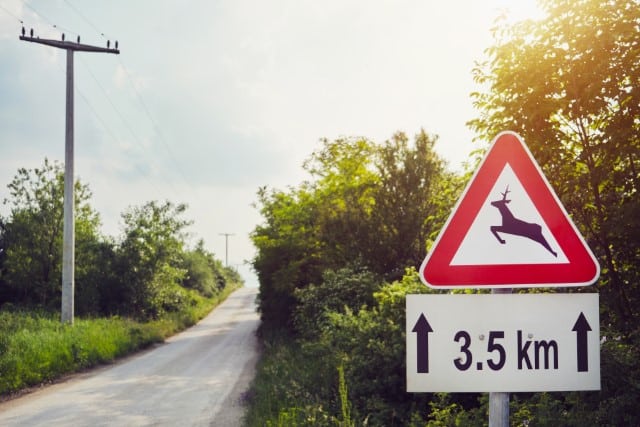
This type of insurance differs from your general auto insurance in that it covers damage to your vehicle that is not the result of a collision with another vehicle or object and is designed to protect you and your vehicle from other types of accidents that may occur and impact your vehicle.
In addition to protection and coverage from animal collisions, comprehensive insurance includes protection from things like damage from natural disasters, theft, and even vandalism.
Of course, this will vary depending on the insurance company so you will want to take a look into the terms of the comprehensive coverage plan you are looking to get.
The Impact of Hitting a Deer on Insurance Rates
Now that we have established the correlation between hitting a deer and insurance rates, we dive into the different ways that hitting a deer may have on your insurance rates – more specifically onto your premium.
Now, before we begin we want to point out that hitting a deer once shouldn’t significantly impact your insurance rates.
Though, hitting a deer along with existing conflicts on your personal driving record may cause your insurance rate to increase.
Here’s some things to consider:
Insurance Company
Of course, different insurance companies will have different rates depending on their various pricing strategies, discounts, or incentives.
Some factors that many insurance companies take into consideration when creating their pricing scheme include things like location, coverage, and additional safety features elected by the driver.
Location
The area where you are located and the area where the accident happens plays a big role in the determination of your insurance rates.
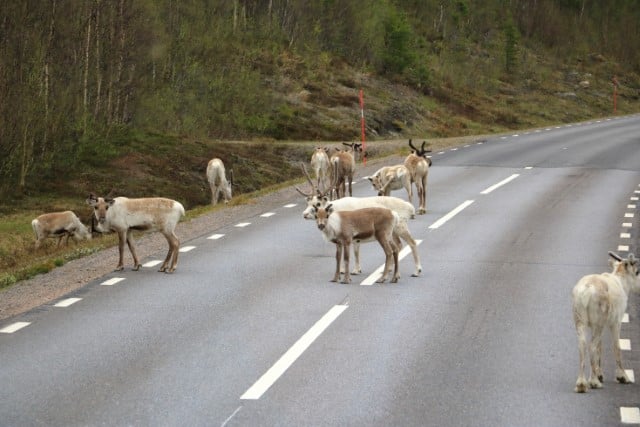
If you live in an area where animal collisions happen more frequently, the insurance rate of the companies in that area may be higher in comparison to insurance companies that don’t normally deal with these types of claims due to their location.
Coverage and Coverage Limits
While we have discussed the perks of comprehensive coverage and how it differs from regular or standard automobile coverage, the inclusions in these packages may differ from company to company.
It is important to note that along the same line, higher coverage may result in higher insurance rates when it comes to premiums.
Additional Features
Again, depending on where you live some insurance companies may offer additional coverage and features that are specific to common occurrences in the area.
For areas that have a high population of deer, some insurance companies may include discounts or lower insurance rates for those who take extra safety measures such as installing deer whistles and deer alarms to their vehicles.
Driving Record
Your personal driving history is a compilation of any and all driving-related activities and history. This includes things such as traffic violations, accidents, and license status.
Oftentimes, your driving record will be the basis for your insurance rates as it helps predict the coverage you may need.
Frequency of Claims
The frequency of filed claims can be seen on your record. Frequent filing of similar claims related to deer or animal collisions can be the basis for an increase in your insurance rates and may increase your premium.
Driving Habits
Your driving habits, such as your annual mileage and type of vehicle may also play a role in the increase of insurance rates.
More mileage indicating more time on the road, especially in places that have a higher rate of animal vehicle collisions may indicate a need for an increase in insurance rates by companies.
Hitting a Deer: The Aftermath and Process
Hitting a deer can be a scary and overwhelming experience.
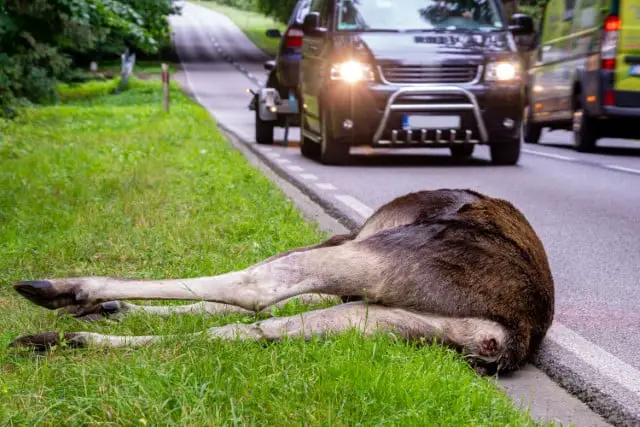
In the unfortunate event that it happens to you, you will want to be sure to take the following steps to ensure your safety, while also maximizing your insurance claim.
Ensure safety
The first thing you will want to do after hitting a deer is to ensure your safety and the safety of those around you.
This step includes bringing your vehicle to the side of the road away from ongoing traffic (if possible). Make sure to turn your hazard light so that your vehicle is more visible to others especially if it is night time.
Don’t drive off after hitting a deer.
You will want to ensure that you have a clear understanding of the situation at hand.
Assess the situation, make note of any injuries to yourself, your passengers, your vehicle, and the animal you just hit (if possible). If needed, be sure to seek medical attention right away.
Call the Authorities
Report the incident. This can be done by calling the local authorities such as the local police and law enforcement.
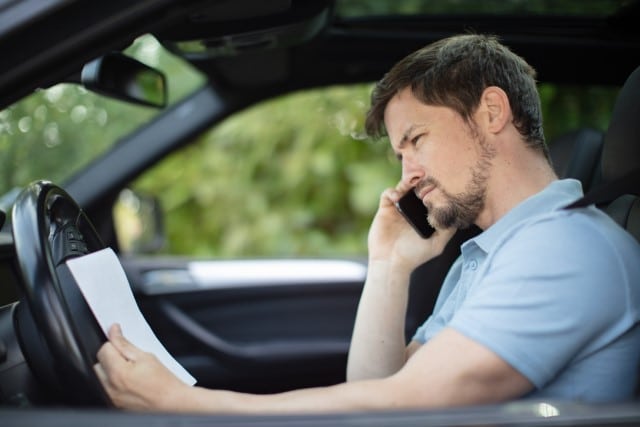
It may take a while for them to arrive on the scene, so you will want to take time to document the accident while waiting.
Documentation
This step refers to taking pictures of the scene of the accident.
You will want to be sure to take pictures of the deer (if possible), your vehicle, and damage done to property nearby as a result of the accident, and any visible injuries.
Proper documentation can help in boosting your insurance claim.
You can also collect other information from the scene such as exact location, time and date and even the contact numbers of possible witnesses who may have seen the accident.
Contact Your Insurance Company
After you have ensured your safety and that of all parties involved, you can call your insurance company to report the incident.
Provide them with basic information so that they can provide you with the next steps necessary to file your claim. Of course, this part will be different depending on your insurance company.
See Your Insurance Adjuster
File your comprehensive insurance claim and see your assigned adjuster who will investigate the accident and assess the damage to your vehicle.
This is where expenses may occur that can be used towards raising your claim such as rental cars, repair estimate, and even medical expenses if necessary.
After your claim has been filed, you will want to keep in touch with your adjuster for updates regarding your claim.
Preventing Deer Collisions
As you can see, deer collisions can be costly and can result in an increase in your insurance rate.
While these accidents can come up and out of nowhere, defensive driving is always your best bet and the best way to keep your insurance rates low when it comes to deer-related accidents. Here are some precautions you will want to take:
Stay Informed
If you are living in an area that has a high deer population, or traveling and visiting and alike, you will want to be informed of the frequency of deer-related accidents.
Having an idea of the area and how often deer come into contact with the main road is helpful in preventing accidents.
Reduce Your Speed
It is wise to reduce your speed when driving in areas that have a high population of deer.
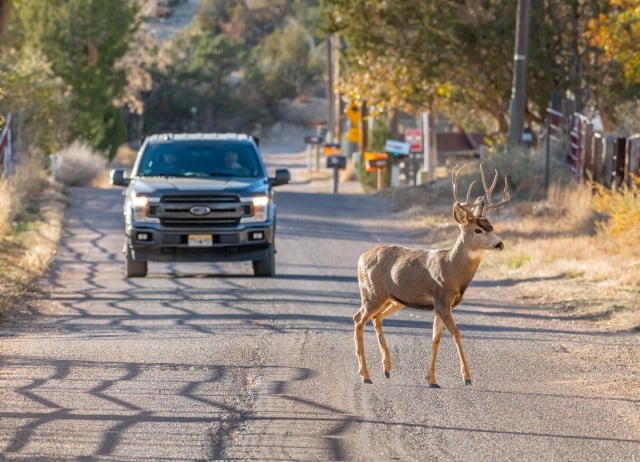
This can help reduce impact or even prevent an accident as a whole as driving at a slower speed will help give you more time to react and navigate.
Scan the Road
Scanning the road frequently and being a vigilant driver is the best way to prevent accidents in general, not just deer-related ones.
However, it is important to note that while technology has advanced and given us tools such as deer whistles that notify the presence of a deer, you still want to rely on your own senses when it comes to navigating your own safety.
Our Final Thoughts
In the end, accidents happen. Fortunately, there are many ways to prevent accidents, and there are many resources such as insurance that are available to help you after accidents take place. If you have hit a deer and are needing to know the next steps, just know that you are not alone.
Understanding the relationship between deer, insurance, and deer related collisions is the first step to helping you in maximizing your claim and being a safe and informed driver.

